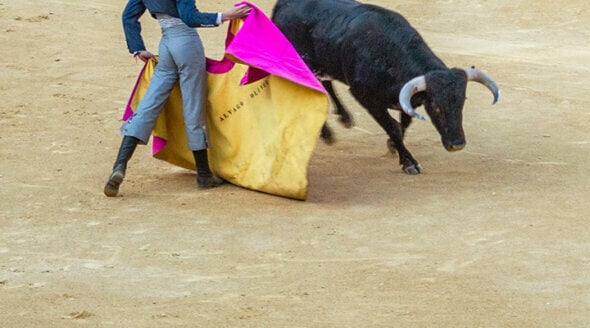New Celebrity Ad Targets Menopause Drug
For Immediate Release:
12th July, 2000
Contact:
Andrew Butler 0208 870 3966
London — Some of the UK’s leading ladies – including Dame Judi Dench, Julie Walters and Elizabeth Hurley – have joined forces with People for the Ethical Treatment of Animals (PETA) to star in a new advertisement highlighting the suffering of horses in the production of the hormone-replacement therapy drug Premarin – which, as the name hints, is made from pregnant mares’ urine. In a bid to educate the thousands of British women who are prescribed Premarin, a host of compassionate celebrities declare that they “wouldn’t touch it with a barge-pole”.
Every year, in the production of Premarin, more than 75,000 mares are impregnated and tied up in small stalls where they are unable to turn around, take even a few steps or lie down comfortably. In order to collect the estrogen-rich urine which is the main active ingredient in the drug, rubber sacks that can cause sores are strapped around the mares’ groins. The mares are denied free access to water so that their urine will yield more concentrated oestrogen. The foals resulting from these pregnancies are considered unwanted “byproducts” and most are slaughtered.
The ad has already been banned by Hello! magazine after being labelled “controversial” and “too political”. PETA are now hoping to run it as a billboard in the autumn, when the foals are sent to slaughter.
The advert gives contact details for PETA who can provide information on the menopause and cruelty-free alternatives to Premarin. Consumers can also visit PETA’s Premarin Web site at www.MenopauseOnline.com.
A copy of the advertisement is attached. Broadcast-quality copies of PETA’s video exposŽ about animal cruelty in Premarin production are also available.
Like a dirty litterbox, some advertisements really reek when it comes to the way they use animals. With that in mind, PETA is proud to announce its annual Litterbox Golden Scoop Award goes to Save the Children for torturing a goldfish.
The charity’s ad depicts a person tossing a struggling fish onto a table and leaving it desperately gasping for water.
Other winners include ebates.com for promoting cruelty to animals in its advertising and Loop-Loc, a pool-cover manufacturer, for showing a baby elephant, who had to endure hours of painful prodding with a bull-hook, balancing on a swimming-pool cover.
PETA presents Litterbox Awards to companies that advertise in ways that are disrespectful to animals and Glitterbox Awards to businesses whose ads depict animals in a positive manner. The winners are featured in PETA’s quarterly magazine Animal Times and on its Web site www.petauk.org.
“Agencies can either warm consumers’ hearts with animal-friendly ads or leave them cold with ads that show animals being harmed,” says Andrew Butler, PETA’s UK representative. “Most advertisers seem to be getting the message that encouraging kindness makes good business sense.”

